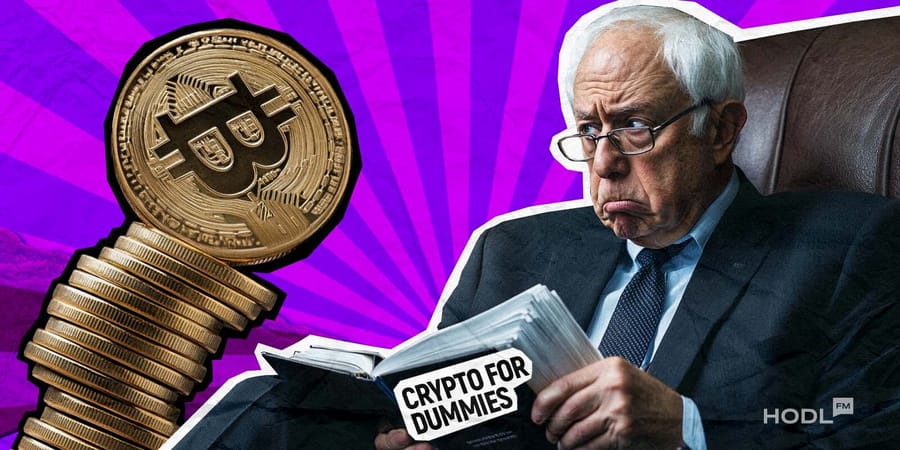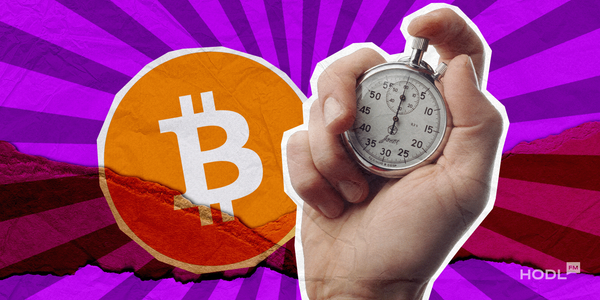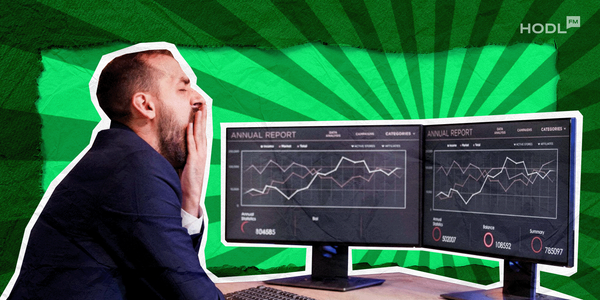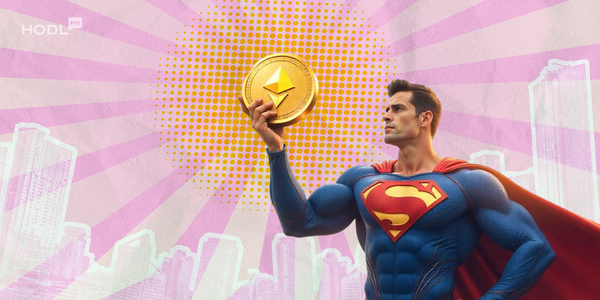The first rule of becoming a politician is that you need to be as cunning as a fox. Sticking with a single, static idea is not enough to consolidate votes. You must be responsive to your opposition’s moves. That’s why there is no past in politics, only today and the future. Now let’s turn our lenses to US, you know, that country in the west where elections are coming, and see how political debate shapes the opposite parties’ views around cryptocurrency.
"Crypto" means different things to different people.
— Gitcoin (@gitcoin) March 31, 2023
The public figures who stake their identity on being against it have a completely different view of it than the people building in crypto during this bear market.
Detractors see crypto as a threat to everyday citizens and…
We actually did a thorough analysis of Trump’s stance toward crypto, make sure to give it a read for, you know, additional context.
Now, if the Republicans are swinging towards cryptocurrency, the Democrats are caught in a dilemma of whether to tighten the reins or loosen them, but just enough to keep voters from straying. The Biden administration has leaned heavily towards caution. They preferred to highlight the risks and vulnerabilities of the crypto market. For Democrats, cryptocurrency was not an opportunity for innovation, but a potential tool for crime, a shortcut to financial instability, and environmental damage.
Yet, the issue is not as black-and-white as it appears. It rarely is. The voter demographic is becoming increasingly pro-crypto in the US, and let’s not forget an experienced Trump is ready to harvest the votes of crypto users who want more freedom for their financial futures. A survey by Stand With Crypto Alliance shows that over half of these voters are likely to support candidates standing for crypto-friendly policies. That’s why Democratic Party may need to reconsider its stance to stay relevant in the 2024 elections. So, what exactly is the Democratic view on crypto, and could it shift in the near future?
#Crypto is your only hope to escape the out of control currency printing by central banks. That’s why these folks hate it so much. They never expected an escape hatch from their old decrepit system.
— Toby Cunningham (@sircryptotips) April 21, 2024
Could it, really?
The current administration’s tough stance has largely been shaped by key Democratic figures like Senator Elizabeth Warren, who has made it her mission to expose what she perceives as the dark underbelly of the crypto world. Warren’s rhetoric in a nutshell: crypto is a shadowy network rife with fraud, money laundering, and terror financing.
Elizabeth Warren is making anti-crypto part of her platform.
— RYAN SΞAN ADAMS - rsa.eth 🦄 (@RyanSAdams) March 30, 2023
Crypto gives power to the people. The power to own digital property.
Anti-crypto is anti-American values.
If democrats make this their policy they will lose. pic.twitter.com/WcbZTad7sq
Under President Biden, the SEC has literally declared war against leading crypto companies such as Ripple and Binance, accusing them of trading unregistered securities and sidestepping regulations meant to protect investors. The Treasury Department has also scrutinized the role of digital assets in facilitating illegal transactions.
But, even in this hostile environment, some Democrats have voiced concerns about the party’s harsh approach to crypto. The risk of alienating younger, tech-savvy voters who view cryptocurrency as a symbol of financial empowerment and innovation, is too great. These moderates advocated for a more balanced view, argued that clear regulations, rather than an outright crackdown, could allow the U.S. to maintain its technological leadership. Guess who was among those critiques? Nope, not Kamala Harris. She prefered to remain silent when it came to crypto. Only very recently she decided to thoroughly address the elephant in the White House.
Kamala Harris meets crypto
Vice President Kamala Harris finds herself at a crossroads. While she hasn’t been outspoken yet, Harris has at least shown an awareness of the political realities surrounding crypto. In a recent debate, she carefully avoided taking a hard stance on the matter, which some see as a strategic move to leave the door open for a future pivot.
Who can blame her? Democrats have been sharply divided over crypto. On the one hand, endorsing the current administration’s tough approach helps consolidate her image as a leader who prioritizes financial stability and consumer protection. On the other hand, a more centrist stance could appeal to the growing number of Millennial and Gen-Z voters who are heavily invested in cryptocurrencies. These voters might be turned off by an overly restrictive regulatory framework, pushing them towards the Republican Party.
1 in 5 American adults own crypto.
— Coinbase 🛡️ (@coinbase) September 11, 2024
And yet it hasn’t been mentioned in the Presidential debates as an issue voters care about.
If you love crypto, make sure your voice is heard this November and pledge to vote.
→ https://t.co/wcWwJMqza5 pic.twitter.com/V1BL0AFfGM
The Democratic camp is not entirely devoid of pro-crypto voices. Some see potential in blockchain technology to boost financial inclusion, lower transaction costs, and even reduce the carbon footprint of financial systems. But these perspectives have yet to make any impact on the party’s broader policy direction.
Biden’s administration has chosen to highlighte the environmental costs of cryptocurrency mining and its energy consumption, putting extra emphasis on it as a key reason for stronger regulations. Democratic base loved that so far.
In contrast, Trump found a new political attacking surface to hunt down the Biden administration. Trump has framed Biden’s SEC and its chair, Gary Gensler, as hostile to innovation. He didn’t stop there and criticized their heavy-handed approach to regulation. He vowed to fire Gensler on his first day in office, arguing that the SEC had overreached in its efforts to control the burgeoning crypto sector.
So what?
If the Democrats continue their aggressive stance, they could solidify their position as the party of financial oversight and consumer protection. But at what cost? They may also risk being seen as anti-innovation and losing ground to Republicans who are painting themselves as the innovative face of America.
Democratic Party may be holding off on fully embracing or rejecting crypto until the political scenery becomes clearer. For now, it seems that the Democrats, Harris too, will maintain their cautious approach and try to balance between regulation and the need to stay competitive against Trump, who also survived no one, but two assasination attempts, making him even larger of a threat for Democrats now.
As it stands, the Democrats can no longer afford the luxury of staying ignorant of crypto. Whether they decide to reformulate their strategy or stick to their guns could very well influence the outcome of the 2024 elections, not just for the presidency but for the party’s identity as a whole.
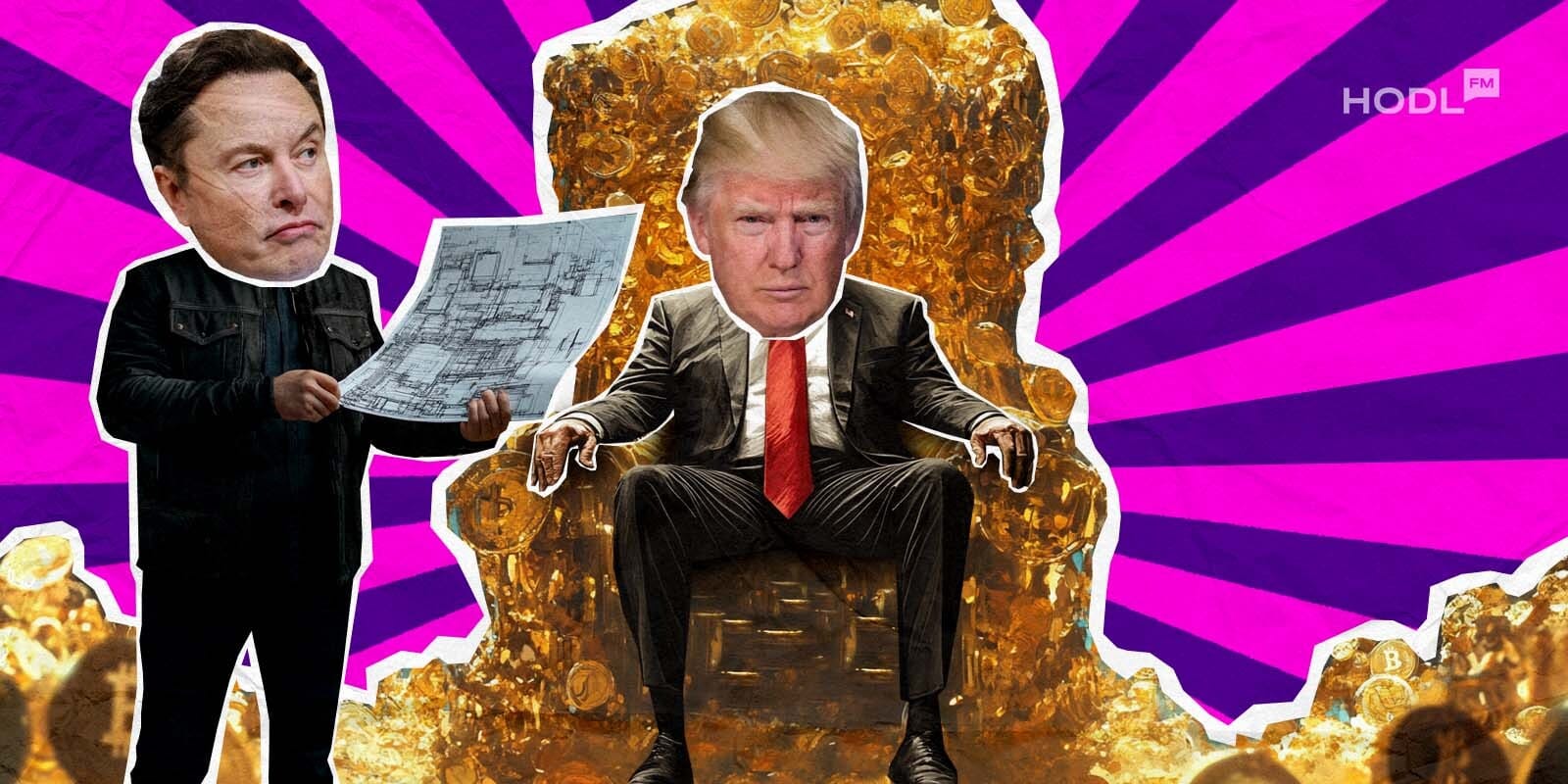
Disclaimer: All materials on this site are for informational purposes only. None of the material should be interpreted as investment advice. Please note that despite the nature of much of the material created and hosted on this website, HODL FM is not a financial reference resource and the opinions of authors and other contributors are their own and should not be taken as financial advice. If you require advice of this sort, HODL FM strongly recommends contacting a qualified industry professional.
